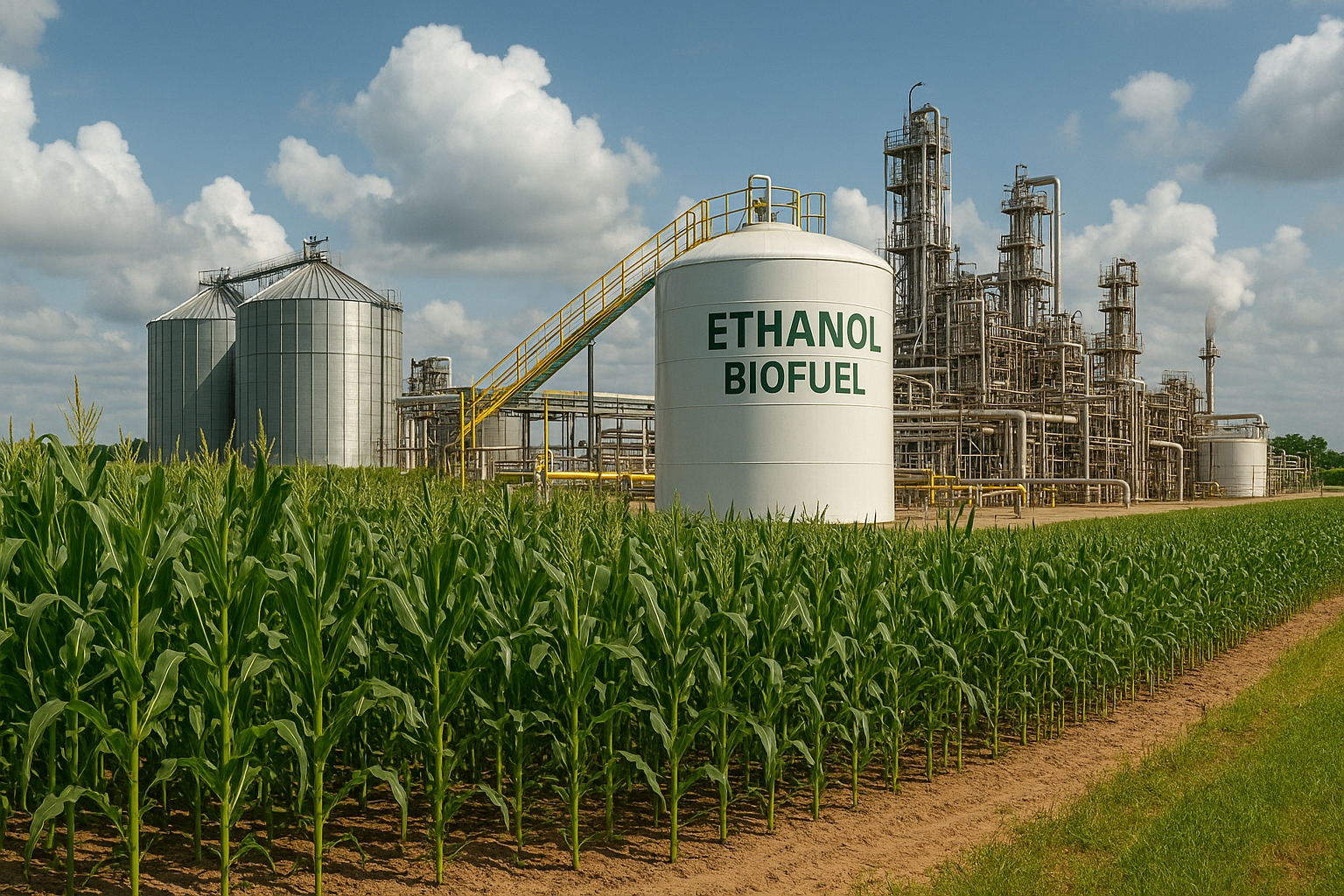Sustainability at Stake: Why Policy Must Shift From First-Gen to Advanced Biofuels
The study by researchers from the Norwegian University of Science and Technology, Wageningen University, and partners finds that biofuels can either cut emissions or worsen them, depending on feedstocks and land-use impacts. It urges prioritizing advanced, residue-based biofuels with stricter global governance to ensure real climate and social benefits.

The study, produced through collaboration between researchers at the Norwegian University of Science and Technology, Wageningen University, and several other European institutes, investigates the sustainability of biofuels in the fight against climate change. At the core of the analysis lies a striking paradox: biofuels can either contribute meaningfully to decarbonization or become part of the problem, depending on how they are cultivated, processed, and governed. With energy demand continuing to climb and transport heavily reliant on fossil fuels, policymakers across the world have turned to biofuels as a potential bridge technology. Yet, as the authors make clear, the true climate value of these fuels depends not just on the type of feedstock used but also on the policy frameworks that shape their development.
Life-Cycle Assessments and the Biofuel Divide
The researchers apply life-cycle assessment to gauge the total environmental footprint of biofuels, including direct emissions, indirect land-use changes, and the benefits of by-products. Their findings highlight a divide between conventional, or first-generation, biofuels and advanced alternatives. Corn ethanol and palm oil biodiesel show highly variable climate benefits: in some cases, they reduce emissions modestly, but when land-use change is factored in, they can actually generate higher emissions than fossil fuels. By contrast, advanced biofuels produced from agricultural residues, woody biomass, or other non-food feedstocks consistently demonstrate substantial greenhouse gas reductions. A graph included in the article starkly illustrates this gap, showing advanced biofuels clustered at the low end of emissions while fossil fuels remain at the top and first-generation biofuels spread unevenly across the middle.
Land Use, Biodiversity, and the Hidden Costs
Land use emerges as the most significant source of contention. Expanding cropland for biofuel feedstocks often competes directly with food production and can accelerate deforestation, threatening ecosystems and biodiversity. Palm oil cultivation in Southeast Asia, for example, has caused large-scale replacement of carbon-rich tropical forests. Tables and diagrams in the paper underscore how cellulosic feedstocks derived from waste or residues offer dramatically lower land requirements compared to crops like soy and palm. This evidence highlights why sustainability standards cannot be limited to carbon accounting alone but must also safeguard biodiversity, food security, and ecosystem services. The authors stress that unless policies properly address land-use impacts, the global expansion of biofuels risks undermining the very climate goals they are intended to serve.
Economics, Policy, and Regional Contrasts
Economic viability presents another layer of complexity. Advanced biofuels remain costlier than fossil fuels and conventional biofuels, though steady innovation and scale efficiencies are narrowing the gap. The study points out that markets alone cannot drive their adoption; strong policy incentives are essential. Subsidies, tax breaks, carbon pricing, and blending mandates all play decisive roles in shaping investment flows. Regional contrasts add to the complexity. The European Union’s Renewable Energy Directive has spurred innovation by enforcing strict sustainability criteria, nudging investment toward advanced options. Meanwhile, the United States and Brazil continue to favor first-generation biofuels like corn and sugarcane ethanol, propelled by powerful agricultural lobbies and entrenched infrastructures. A timeline diagram in the article shows how these policy choices diverged over the past two decades, shaping not only domestic markets but also global supply chains. Such fragmentation makes it harder to create unified global standards that could ensure biofuels consistently deliver genuine climate benefits.
Social Justice and the Path Forward
Beyond the environmental and economic arguments, the study places significant weight on social implications. The biofuel sector can stimulate rural development by creating jobs and revenue streams, but without safeguards, it risks exacerbating inequality. In some regions, smallholder farmers have been displaced by large-scale agribusinesses, fueling land conflicts and undermining food security. The researchers argue that sustainability must be understood not just in environmental but also in social terms. Policy recommendations are therefore both ambitious and practical: prioritize waste- and residue-based feedstocks, implement robust monitoring of land-use change, and design performance-based incentives that reward actual climate benefits rather than production volumes. Biofuels should be integrated into a broader clean energy transition, complementing electrification in sectors such as aviation and shipping, where battery solutions remain limited. The conclusion of the article strikes a balanced tone, recognizing biofuels as essential but insisting that their role be carefully circumscribed by rigorous governance. The authors argue for a recalibration of policy priorities, away from headline fuel targets and toward deeper integrity, equity, and sustainability.
- FIRST PUBLISHED IN:
- Devdiscourse










